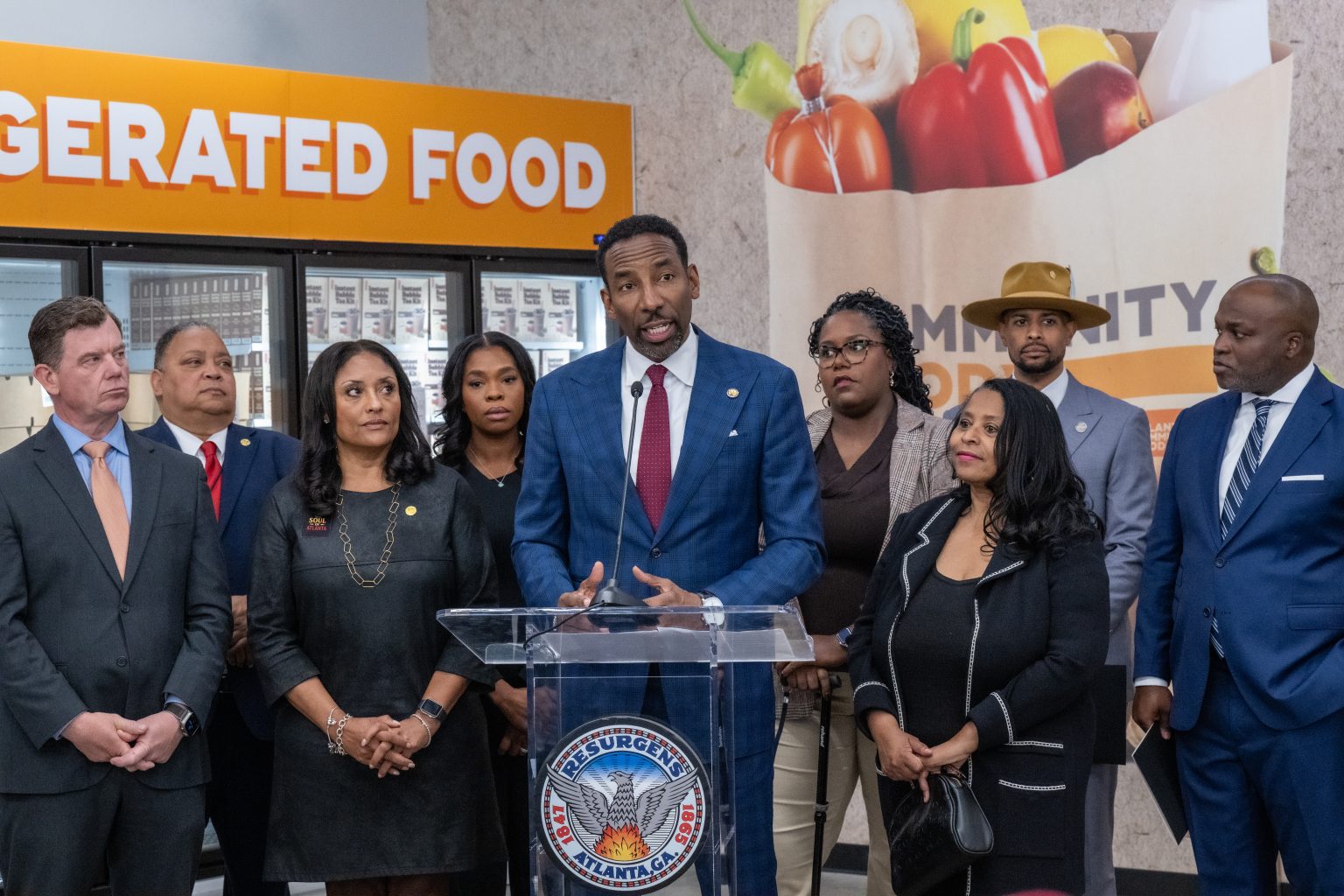As federal funding stalls, Atlanta steps up to protect families from eviction, water shutoffs, and hunger
When federal safety nets falter, Atlanta steps forward. Mayor Andre Dickens has announced an emergency moratorium on residential evictions and water shutoffs to protect families facing the potential lapse of Supplemental Nutrition Assistance Program (SNAP) benefits.
Beginning November 1, thousands of Atlanta residents—including seniors, children, and working families—may lose access to vital food assistance due to federal funding uncertainty. For many, SNAP means more than groceries—it means stability, dignity, and hope.
“No resident should go hungry or wonder how they will put food on the table because of a government shutdown,” said Mayor Andre Dickens. “We care and are standing in the gap—not as a substitute for federal benefits, but as a bridge to ensure our residents’ basic needs are met.”
Standing in the Gap: ATL CARES Initiative
To respond swiftly, the Dickens Administration launched ATL CARES (Community Action & Relief for Emergency Support), bringing together City departments and nonprofit partners to keep Atlantans fed, housed, and cared for during the federal funding lapse.
Through an Administrative Order, Mayor Dickens directed:
-
No water shutoffs for non-payment through January 31, 2026, or until federal operations resume.
-
Temporary moratoriums on residential evictions and late rent penalties for City-owned or City-funded housing developments, including those managed by the Atlanta Housing Authority, Invest Atlanta, Partners for HOME, and others.
These measures will provide residents with stability and time to recover while longer-term solutions are identified.
Feeding Families in Need
The City’s largest food partner, the Atlanta Community Food Bank (ACFB), is drawing $5 million from its reserves to purchase over 6 million pounds of emergency food for distribution over the next month.
“The Food Bank has taken decisive measures to purchase additional food and increase our distribution capacity by nearly 85%,” said Kyle Waide, President and CEO of ACFB. “These additional funds will allow us to reach thousands more households struggling to put food on the table and ensure that no family in Atlanta goes hungry during this critical time.”
The City is also coordinating with partners such as Goodr, Hosea Helps, Atlanta Public Schools, and neighborhood-based nonprofits to expand meal distribution and food access points across the city.
How You Can Help: Join ATL CARES
Mayor Dickens is calling on faith leaders, businesses, and residents to take part in ATL CARES through three key actions:
-
Contribute to local food banks and community pantries – Visit acfb.org/shutdown, Goodr.co, or 4Hosea.org to donate.
-
Support a local family – Work with your Neighborhood Planning Unit (NPU) or community association to identify families in need.
-
Host or join a food drive – Schools, businesses, and community groups are encouraged to organize donation efforts to fill the gap left by SNAP.
Understanding the Impact
Roughly 260,000 residents in metro Atlanta—13% of the population—depend on SNAP benefits, including more than 51,000 in Fulton County alone. Across Georgia, over 1.6 million residents rely on SNAP each year, representing about $251 million in monthly assistance.
Without immediate action, the SNAP lapse could deepen food insecurity for thousands of Atlanta households—especially seniors and families living paycheck to paycheck.
A City that Cares
From keeping the water running to ensuring no child goes hungry, the City of Atlanta is committed to protecting residents through this period of uncertainty.
Residents can find updates and a list of resources at atlantaga.gov or on the City’s official social media pages.
